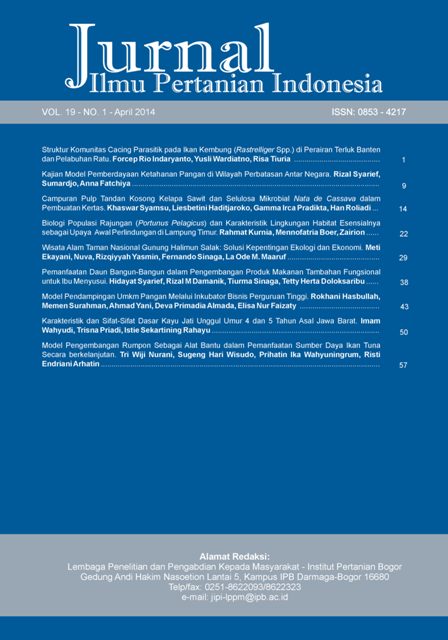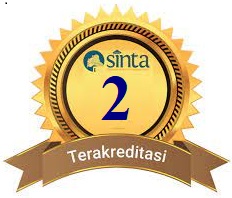Model Pendampingan UMKM Pangan Melalui Inkubator Bisnis Perguruan Tinggi
Keywords:
business incubation, mentoring model, participative mentoring, SMEs of food processingAbstract
Business incubator in Indonesia has not developed yet as in developed countries. It is caused by a lack of support from the government and the lack of a model of the concept of business incubation as a reference. This study aimed to develop a mentoring model for food processing SMEs through the Business Incubator in higher education. Research was conducted at several Business Incubators belong to universities by interviewing managers and tenants of the business incubators that have focus on the food processing sector. Data were analyzed using Analytical Hierarchy Process (AHP) and SWOT. The results showed that the most effective incubation models for the food processing SMEs is a model of mentoring participatory. SMEs tenants should be involved in any decision-making process and are actively involved in discussions about their business problems and solutions to overcome their problems. Incubation of tenants is carried out for three years covering the stage of pre incubation, incubation and post-incubation. The main program of incubation for SMEs include technical and managerial training, simple accounting, preparation of business plan, facilitating access to capital and marketing.
Downloads
References
Bank Indonesia. 2006. Kajian Inkubator Bisnis dalam rangka Pengembangan UMKM. Jakarta (ID): Tim Penelitian dan Pengembangan Biro Kredit BI.
InfoDev. 2011. Growing food, product, and business: Applying agribusiness incubation to agribusiness SME’s. InvoDev Publication, World Bank Washington DC, US.
Kementerian Koperasi dan UKM RI. 2012. Pedoman Pendirian dan Pengelolaan Inkubator Bisnis. Jakarta (ID). Deputi Bidang Pengembangan dan Restrukturisasi Usaha.
Peraturan Presiden Republik Indonesia Nomor 27 Tahun 2013 tentang Pengembangan Inkubator Wirausaha.
Syarif T. 2009. Pengembangan Wirausaha Baru Melalui Inkubator Bisnis. Kementerian Negara Koperasi dan Usaha Kecil dan Menengah. Jakarta (ID).
Downloads
Published
Issue
Section
License
This journal is published under the terms of the Creative Commons Attribution-NonCommercial 4.0 International License. Authors who publish with this journal agree to the following terms: Authors retain copyright and grant the journal right of first publication with the work simultaneously licensed under a Creative Commons Attribution-NonCommercial 4.0 International License. Attribution — You must give appropriate credit, provide a link to the license, and indicate if changes were made. You may do so in any reasonable manner, but not in any way that suggests the licensor endorses you or your use. NonCommercial — You may not use the material for commercial purposes.




















